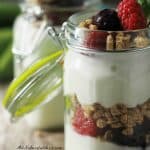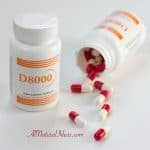Superbugs are the result of overusing antibiotics. There are several daily routines that may prevent superbug infections by boosting your immune system.
What is all of the buzz about superbugs?
Well, as of recent superbugs are flooding the medical media due to their resilience to antibiotics. Each year, more and more patients fall ill and unfortunately die to new strains of bacteria because of the inadequate resources to fight against the stronger strains of bacteria. MRSA (methicillin-resistant Staphylococcus aureus) takes most of the fame as the superbug of the twenty-first century.
According the the CDC, MRSA takes over 11,000 lives each year. Through the mid-2000s MRSA incidences have nearly doubled, and the rate of antibiotic-resistant infections continues to rise. Just last year the FDA introduced a new antibiotic to combat the superbug, an antibiotic known as Dalvance, which can only be taken intravenously.
As time continues onward, stronger and stronger antibiotics will need to be developed, approved, and implemented which unfortunately will in turn create stronger strains of MRSA.
What causes the rise of superbugs?
In part, the rise of the superbug epidemic is due to human ignorance, both patients and doctors alike. Over the years people have developed the mindset that antibiotics are the “cure all drug” and that they should be used to cure any infection.
Truth is, antibiotics are only effective in combating bacterial infections. Therefore, by taking antibiotics for a flu or any other viral infection deters the natural homeostasis that takes part in our immune systems. This leads to different strains of bacteria arising, passing new genetic code programmed to be resistant to antibiotics.
Doctors may misdiagnose a viral infection for a bacterial infection, prescribing a patient a cycle of antibiotics. When the tests come back stating that the patient does not have a bacterial infection, the affects of the antibiotics have already happened.
The other factor in this rising epidemic is patients acquiring antibiotics and taking them without any medical supervision. Both doctors and patients can be to blame for the the mistreatment and misuse of antibiotics.
Secondly, patients have also developed the mindset that low doses are better than full cycles of antibiotics. To a certain degree, they are correct. However, in most cases a doctor can accurately prescribe an antibiotic cycle for a given infection. It is absolutely inherent that patients take the
It is absolutely inherent that patients take the full dose of antibiotics they are prescribed to insure that all of the bacteria have been treated. Even if someone feels better after a few days of antibiotics, it is absolutely important that they complete their cycle. If the cycle is not completed, the stronger, more resistant bacteria remain in the bloodstream and will multiply. This stronger breed of bacteria then reinfects the patients and normal antibiotics become harder to treat the infection at hand.
Who is at risk of superbugs?
It was once believed that only hospitals could infect patients with superbugs, typically known as HA-MRSA (Hospital Acquired methicillin-resistant Staphylococcus aureus). An accurate reason for this belief is that hospitals are full of patients with weakened immune systems and open lacerations from surgeries or injuries.
Hospitals also have the reputation for being “over clean” which in parts acts similarly to overuse of antibiotics. The overuse of antibacterial products has formed the breeding grounds for HA-MRSA in hospitals.
However, more recently, HA-MRSA is escaping from hospitals and has begun infecting the general populace. Normal staph infections (non-MRSA) colonize a modest chunk of the population and infections are not all that uncommon. However, with the promotion of being
However, with the promotion of being “cleaner” superbugs have also been bred into the general populace and is known as CA-MRSA (Community Acquired methicillin-resistant Staphylococcus aureus). Those most at risk for this infection are those individuals who closely interact with one another such as in football and wrestling.
Although living with an anti-bacterial mindset is not the answer (and quite frankly not practical), not sharing used towels and showering after physical activities is inherent as a preventative measure to curbing the spread of the superbug infection in the general populace.
Regimens That May Prevent Superbug Infections
The best thing you can do to prevent being infected by superbugs is to have a strong healthy immune system. The following are some of the best ways to boost your immune system:
- Eat alkaline foods: Bacteria, fungus and viruses cannot survive in an alkaline environment. Alkaline foods like fresh fruits, vegetables, and leafy greens are also packed with antioxidants. Acidic foods like sugar and coffee should be consumed in limited amounts. If you need help restoring your pH balance, there are supplements you can take to alkalize the body like Green SuperFood.
- Grab your silver: Colloidal silver is a natural supplement that can be taken to boost immune system. While antibiotics crate a resistance or immunity to the bacteria, colloidal silver stops cellular respiration in bacteria cells which suffocates them and leaves normal cells intact. Colloidal silver has a similar affect on other pathogens like viruses.
- Increase Sun Exposure: It is well known that illnesses are more prevalent in the winter months because people do not get adequate amounts of sun exposure which decreases production of Vitamin D in your skin. If you are unable to get enough sun exposure or simulated sun exposure, it’s recommended to take a minimum of 8,000 IU’s of vitamin D supplement daily.
- Take Probiotics: The beneficial microorganisms that live in your digestive tract not only aid digestion, but help build immunity. Probiotics keep you healthy by crowding out the bad microorganisms that cause illnesses.
- Get adequate rest: The body rebuilds during sleep and adequate rest is needed for a healthy immune system. When you sleep, your body replenishes its supply of white blood cells. The average adult should get 8 hours of sleep each day.
- Reduce Stress: We all know that long term stress can cause serious health issues. Hormones that are activated during stress can suppress the immune system if stress becomes a chronic issue. Too much stress can also create an acidic environment in the body which is a welcoming environment for bacteria, viruses, and fungus. Mild exercise, yoga, and meditation are great ways to relieve undue stress.
Treating MRSA Superbug Infections
If you do happen to contract MRSA, some people claim to have had success in treating MRSA naturally. You could try to use one or a combination of the following:
- Manuka Honey
- Pacalite Bentonite Clay
- Tea Tree Oil
- Turmeric
- Oil of Oregano
- Olive Leaf Extract
We hope to provide additional information on these natural alternative treatments in future posts.
Disclaimer: The information presented herein should not be taken as professional medical advice.








